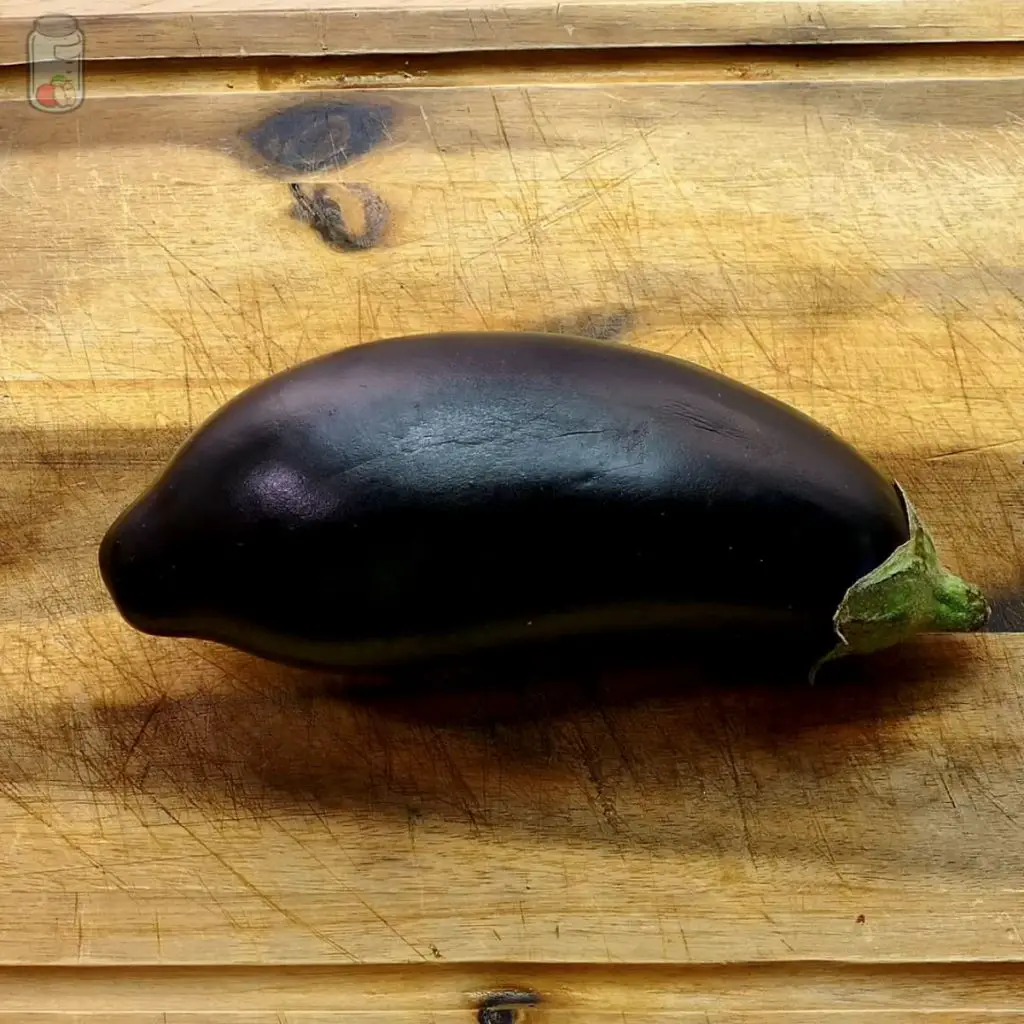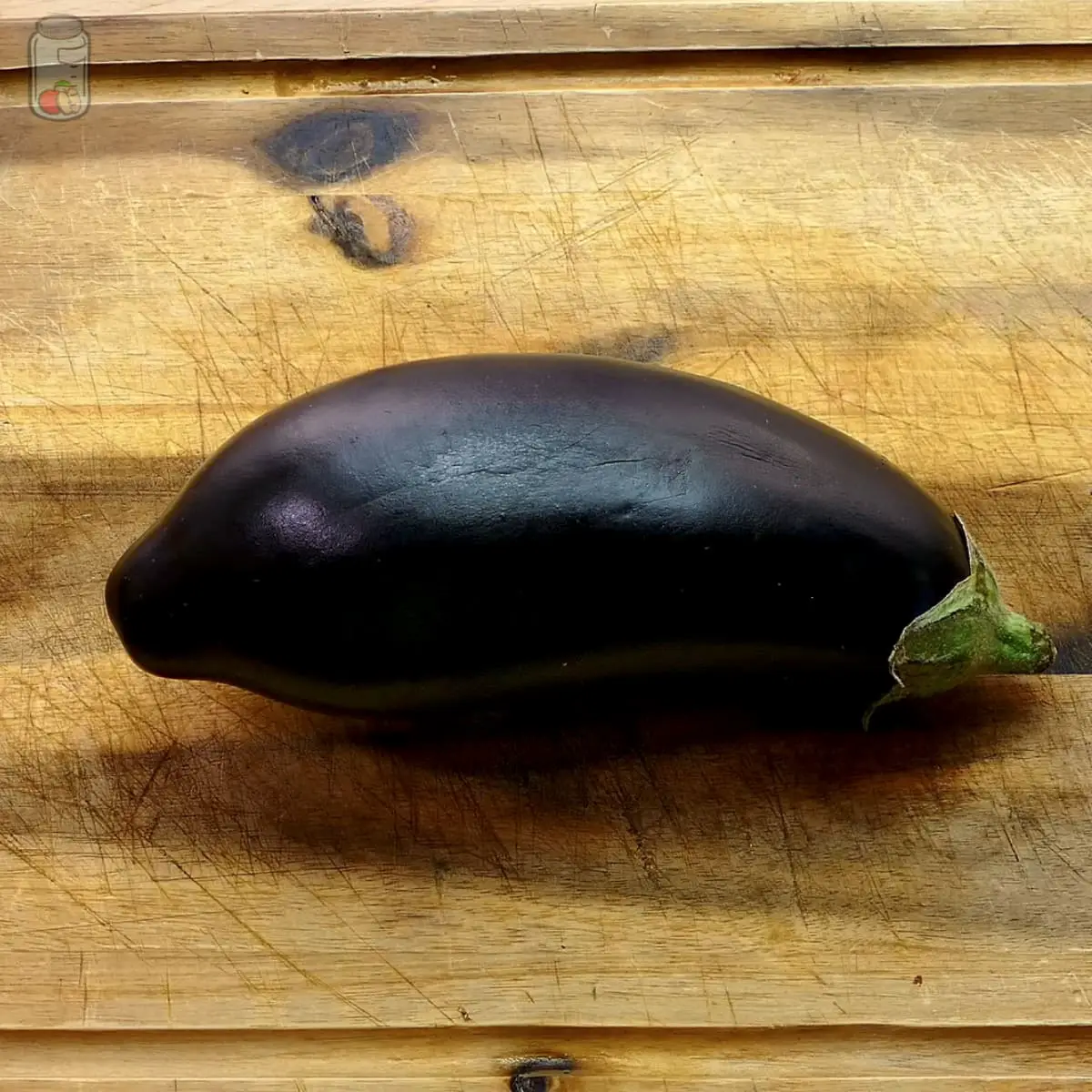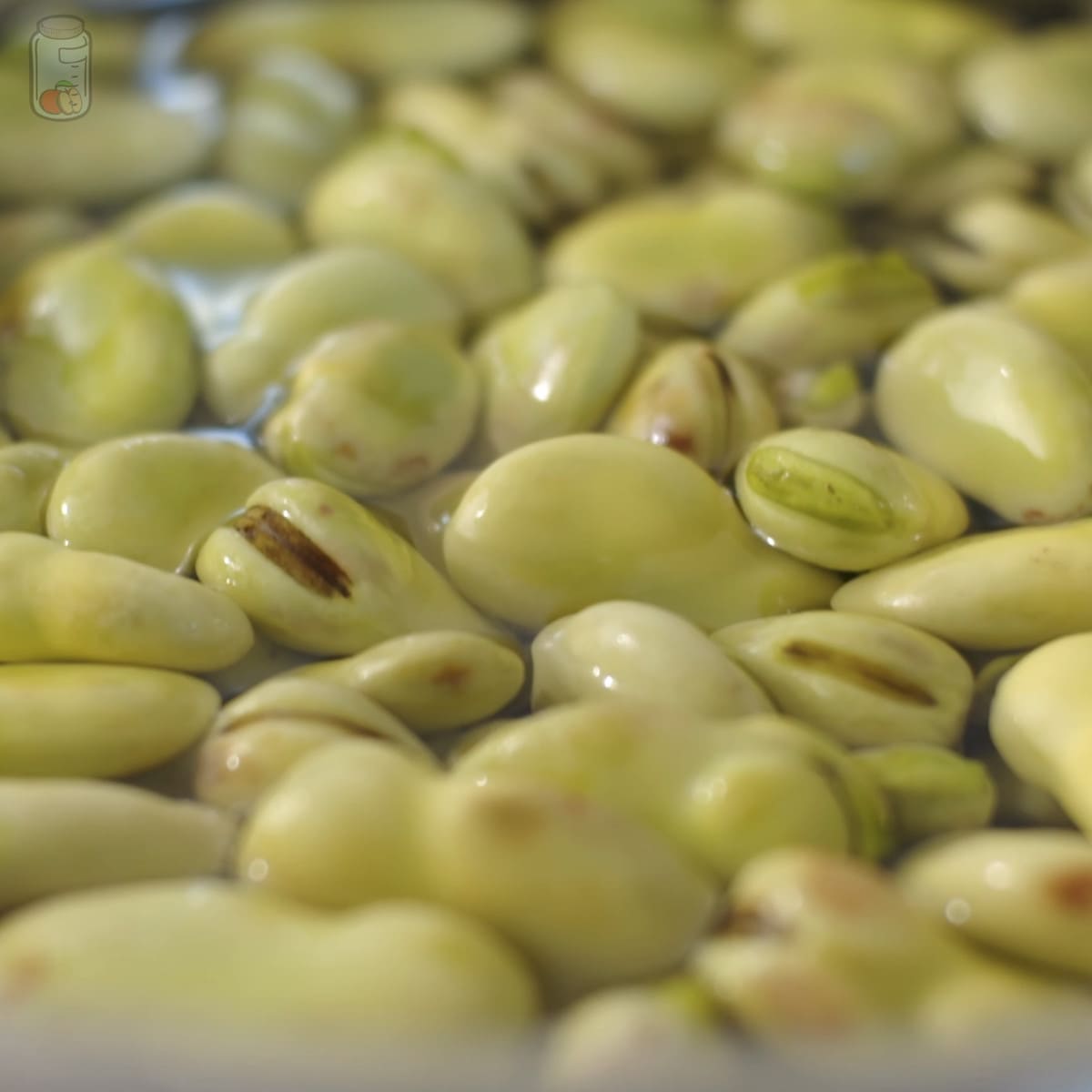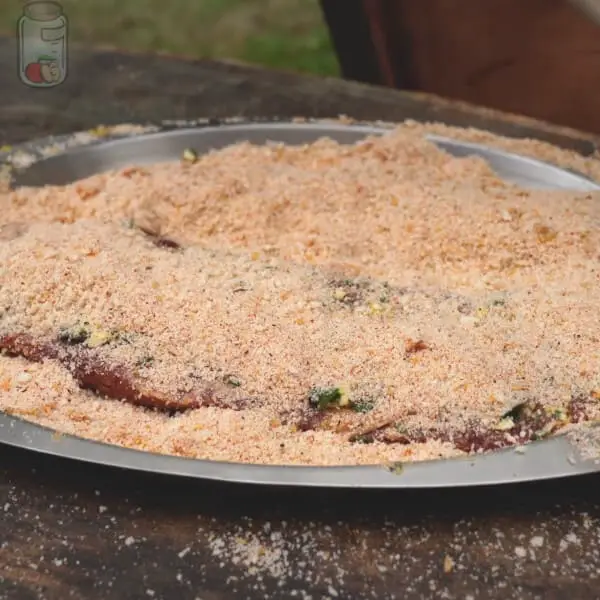Eggplants are a fruit whose most popular variety has an intense purple color. Still, there are also black, white, yellow, red, and more, and its pulp is fluffy and white. I’m sure you know that, so get ready to learn how to store eggplants now.
Eggplants are highly delicate, so they barely last a day or two at room temperature. Inside the fridge, they can last between 4 and 7 days; frozen, they resist 6 or 8 months. Additionally, you can dehydrate them for one year.

If you want to know how to preserve eggplants properly, keep reading.
How to preserve eggplants at room temperature
As I mentioned, eggplants are an extremely delicate fruit, so you should always select those in their best condition to last a little longer.
So, to choose the best eggplants, first, check if they have unblemished and utterly smooth skin, do not buy those eggplants with white or black spots because they are close to being damaged.
The eggplant must also be firm, so if it is incredibly soft and flattened, it will probably have already spoiled.
Finally, if you have yet to buy many eggplants and plan to make them the next day, you can store them at room temperature.
Place the eggplant in a paper bag or a basket, then cover it with a clean towel. Leave them in a dark, dry, cool place without piling them up. That way, the eggplant can withstand a day or two at room temperature. [1]
How to keep eggplants in the fridge
The refrigerator is a “safer” option for storing eggplants. I put it in quotes because even the cold generated by this equipment can significantly affect it if you do not take the appropriate measures.
Storing whole eggplants in the fridge
The first thing is to wrap the eggplant with paper towels, so the refrigerator’s humidity does not affect this fruit. The second is not to place the eggplant next to other foods that emit ethylene gas, such as bananas, apples, etc.
You should also not leave the eggplant in the coldest part of the fridge. Instead, use the vegetable compartment.
Thus, the eggplant can be kept refrigerated for 4 to 7 days, also depending on the level of maturity that this berry has (yes, eggplant is a type of berry). [2]
Storing chopped eggplants in the fridge
You should use the chopped eggplant immediately; otherwise, it will oxidize and may be much more bitter. To slow that process a bit, you must do the following:
- Bath with lemon juice.
- Put it in a bag or airtight container.
The raw and chopped eggplant can last 1 or 2 more days in the refrigerator.
Storing cooked eggplants in the fridge
In case you wonder how to preserve cooked eggplant, follow the instructions below:
- Step 1: Wait for the eggplant to cool.
Never keep a hot meal in the fridge because it could damage faster, and that is not what you are looking for.
- Step 2: Transfer the cooked eggplant to an airtight container.
You can put the eggplant inside an airtight container when it has cooled.
- Step 3: Store the eggplant in the refrigerator.
Unlike raw eggplant, in this case, it is better to put it in the coldest part of your refrigerator. The cooked eggplant will remain in the fridge for 4 or 5 days.
How to freeze eggplants
To store the eggplant in the freezer in the proper way, you must follow these steps:
- Step 1: Wash and cut the eggplant.
Wash the eggplant with water, rubbing its skin well. Then you can chop it into slices or cubes. If you like, you can remove the peel, although it is edible.
- Step 2: Blanch the eggplants.
Boil water in a pot, then put the eggplant pieces in the pot and cook for 3 or 5 minutes once boiled. After this time, remove the eggplants and put them in a bowl with cold water and ice cubes. Strain and leave them there for a while to dry well.
- Step 3: Perform the first freezing of eggplants.
Spread the eggplant pieces on a clean towel or paper towel to remove excess moisture, then arrange them on a tray with wax paper.
You must spread the pieces evenly and try not to touch each other so they do not stick. Then, put the eggplant in the freezer for 4 hours.
- Step 4: Transfer the eggplants to airtight containers.
Once the eggplant pieces are completely frozen, transfer them to an airtight bag or container. Still, it must be freezer resistant, or it could break easily, and the eggplant could suffer frostbite.
- Step 5: Write the storage date of the eggplant.
Write the date on the bag or container, but if you do not want to scratch it, you could stick a label with that information or put some pieces of tape and, on top of it, write the date with a marker.
- Step 6: Store the eggplant in the freezer.
You can keep eggplant for 6 to 8 months in the freezer. [3]
To defrost it, I recommend moving it a day before to the fridge, where it can be one more day.
You can also thaw the eggplant at room temperature; just cover the portion you need in a bowl. It takes 30 to 40 minutes to thaw.
If you cooked eggplant for a recipe, wait for it to cool before passing it to airtight containers, and follow the rest of the steps I mentioned before.
Eggplant cannot be refrozen, and if you thaw it at room temperature, you will have to consume it all since you cannot refrigerate it again.
How to preserve dehydrated eggplants
You can also dehydrate eggplants to keep them for much longer. To conduct this process, do the following:
- Step 1: Wash and cut the eggplant.
Before cutting the eggplant, wash it with water, rub its skin well, and chop it into thin slices. You can peel the eggplant, but you could dehydrate it with everything and shell.
- Step 2: Blanch the eggplants.
You can do this step in the common way: throw the eggplant slices in a pot with boiling water for 3 or 5 minutes. Or you could steam them for the same period and thus retain their nutrients better. For this, put the pieces of eggplant in a colander and put this in the pot with boiling water.
After the cooking time, in either of the two cooking processes, you must roast the eggplant pieces in a bowl with cold water and ice cubes to cut the cooking. A minute later, strain and dry them by spreading them on a clean towel or absorbent paper.
- Step 3: Dehydrate the eggplant.
If you have a food dehydrator, put the eggplant slices on their internal racks, leaving some space between them so that the air circulates better. Set the temperature to 50°C (120°F) and dehydrate for 10 or 12 hours.
But you could also use your oven and preheat it first to the lowest temperature, between 90°C and 110°C (200°F – 230°F), depending on the oven.
Then, prepare a tray with parchment paper or a nonstick or mesh sheet. On top, arrange the eggplant slices side by side, without stacking or gathering too much, and bake for 4 or 6 hours.
In any case, turn the eggplant slices so they do not burn. If using a food dehydrator, do it every 3 or 4 hours; in the oven, you should turn them every hour.
You will know eggplants are ready when they get thinner and somewhat brittle.
- Step 4: Transfer the dehydrated eggplant to airtight containers.
Before putting the dried eggplant in airtight bags or containers, wait for them to cool. If you plan to keep it at room temperature, I recommend you use glass containers, and if you want to freeze them, use resistant containers.
- Step 5: Write the preparation date.
Attach a few pieces of tape in case you do not want to scratch the container, and on these, write the date or stick a label with that information.
- Step 6: Store the dehydrated eggplants.
You can store them in a cool, dry, and dark place. The dehydrated eggplants can be kept for 10 or 12 months. But if you freeze eggplants, they will keep for 2 or 5 years.
How to preserve pickled eggplants
You can prepare a pickle with eggplants that, in addition to flavoring, can make them last a little longer. For each kilo of eggplants, you will need a liter of water and another of vinegar, one cup of oil, three cloves of garlic, bay leaves, salt, and spices of your choice.
- Step 1: Wash and cut the eggplants.
Wash the eggplant with water before cutting them into slices about a centimeter thick. You can peel it before if you want.
- Step 2: Salt the eggplants to remove the bitterness.
Before cooking eggplants, sprinkle them with salt (preferably sea salt) to remove all the juice that gives them a bitter taste.
To do this, put the eggplant slices in a colander, sprinkle the salt on and let stand between 4 and 6 hours. The eggplants will become soft and rust, but they will have thrown away a lot of water.
- Step 3: Cook the eggplants in the brine.
In a pot, pour the water and vinegar with the bay leaves you like, take to the fire, and when it boils, add the slices of eggplant, lower the heat, and cook for 7 minutes. After this time, drain the eggplant and let it rest in the colander until they cool.
- Step 4: Put the eggplants in glass jars.
In glass jars with airtight or screw lids, fill in this way:
- Add a splash of oil.
- Add the eggplant slices.
- Cover them with more oil.
- Add the spices.
- Repeat until you fill the jar leaving one finger free.
- Clean thoroughly before closing the jar.
- Step 5: Seal the jars with the vacuum eggplant pickle.
To make it, you will have to use a large pot. Put a towel or rack in the pot and arrange the jars. Cover them with water or fill them halfway and turn the stove on high heat until it boils.
Lower the heat to medium level, and let it boil for 20 or 30 minutes.
- Step 6: Remove the jars.
Wait for the water to cool down, remove the jars with tweezers, and let them rest away from the sun for several hours until they feel cold.
- Step 7: Write the date of preparation of the marinade.
You can stick a label containing the date of preparation of the eggplant pickle on the jar or attach a little tape and write the date.
- Step 8: Save the eggplant pickle.
You can store the jar with pickle in a place free of moisture that does not directly hit the heat or light. That way, the sealed bottle with pickle can be kept at room temperature for 10 to 12 months.
You can also store it in the fridge and place it in the coldest part. The sealed bottle with pickle will keep 18 months in the refrigerator.
Once you uncap the jar, keeping the pickled eggplants refrigerated for 3 or 4 weeks is best.
How to know if eggplants got bad?
If the eggplant presents any of these signs, it is because it will have spoiled, and you will have to get rid of it:
- Mold: If the eggplants appear with black or white spots or lint, they will have been contaminated with mold.
- Loss of firmness: When eggplants are fresh and whole, they should be firm, so if they are flaccid and watery, they have most likely rotted.
- Unpleasant smell and taste: when eggplants smell like rotten fruit, it is time to throw them away. The same if they taste weird.
How long do eggplants last?
| Product | Duration |
| Whole eggplant at room temperature | 1 – 2 days |
| Whole eggplant in the fridge | 4 – 7 days |
| Chopped eggplant in the fridge | 1 – 2 days |
| Cooked eggplant in the fridge | 4 – 5 days |
| Frozen eggplant | 6 – 8 months |
| Dehydrated eggplant at room temperature | 10 – 12 months |
| Dehydrated eggplant in the freezer | 2 – 5 years |
| Pickled eggplant at room temperature (sealed) | 10 – 12 months |
| Pickled eggplant in the fridge (sealed) | 18 months |
| Pickled eggplant in the fridge (open) | 3 – 4 weeks |
What is the best way to store eggplants?
It is difficult to determine the best way to preserve eggplants, at least when fresh, because they are incredibly delicate, but arguably the best way to maintain eggplants is to store them in the fridge.
However, you can extend the shelf life of eggplants by dehydrating them or preparing an exquisite pickle with them.
If you want to preserve any other food, check the following posts related to this one.
[1] https://foodbanksbc.org/wp-content/uploads/2014/12/Food-Storage-Guidelines3.pdf
[2] https://foodsafety.gov/keep-food-safe/foodkeeper-app
[3] https://lee.ces.ncsu.edu/wp-content/uploads/2012/12/TheFoodKeeper.pdf?fwd=no







